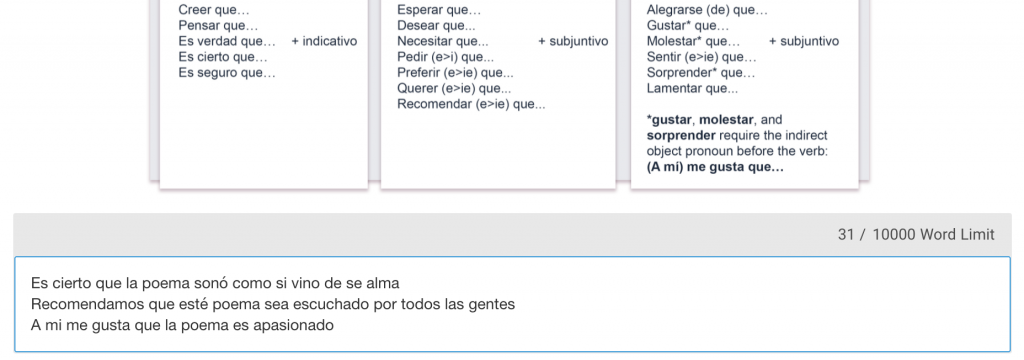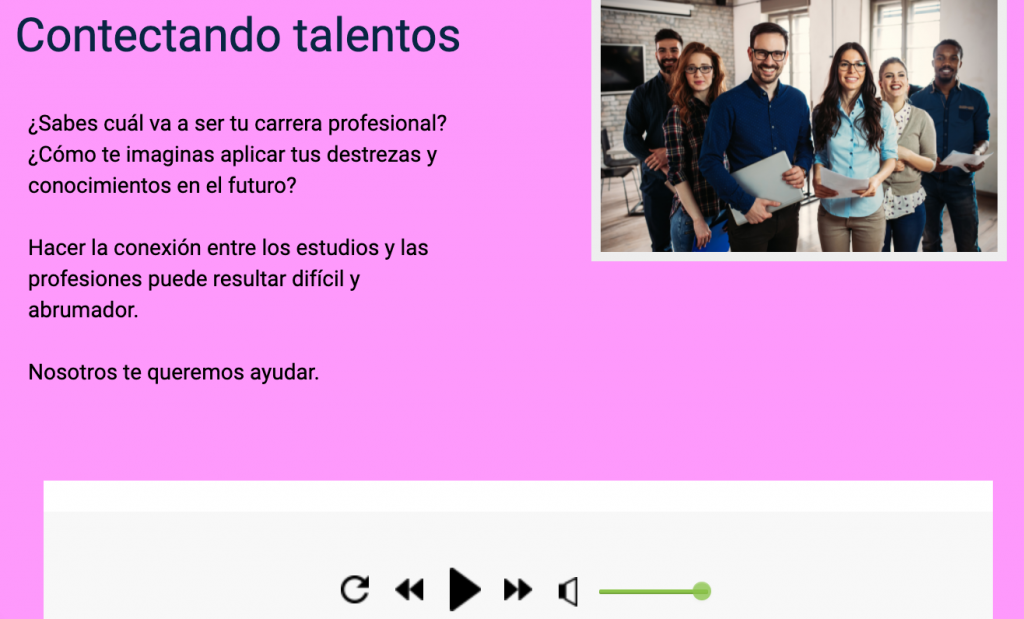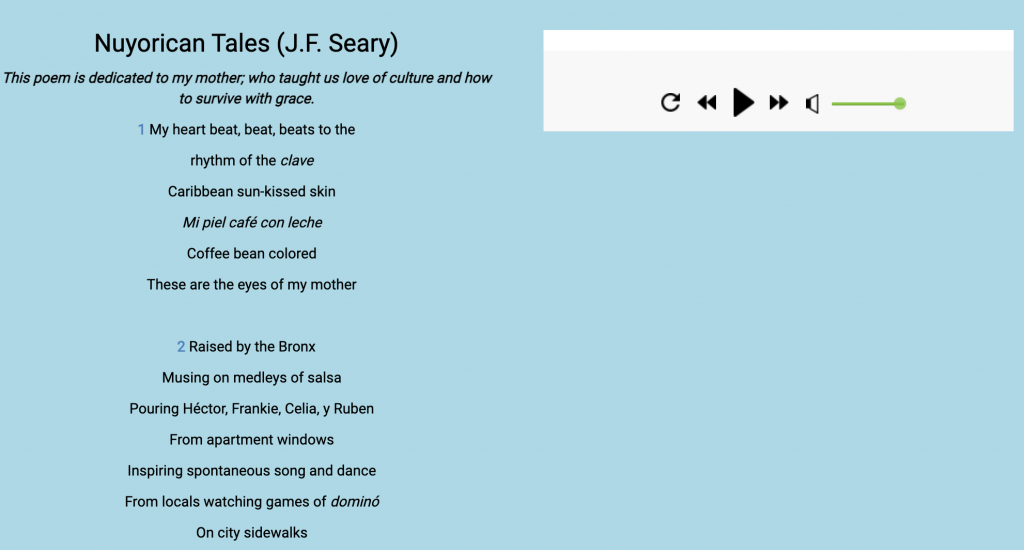Interpretive, Interpersonal, and Presentational Modes of Communication
Instructions
Exploring Culture
Throughout my time learning Spanish at ODU, I’ve been given an opportunity to expand on my knowledge of other cultures from my own. I was able to explore history, art, and poems that are famous in Spanish speaking countries and used it to grow as a student. As a teacher, this will be helpful in my classroom due to the fact my students come from many different backgrounds that deserve to be celebrated and respected.
Understanding the cultural values in Spanish speaking countries helped me recognize my own cultural values and how it makes me who I am. It changed my world view by educating me on a variety of backgrounds and values and how each have differences as well as similarities. In the beginning it was difficult for me to see past my own culture, however, I was able to appreciate the beliefs and values of others over time of learning. Stereotypes clouded how I saw others but my perception was quickly changed when considering stereotypes others have toward Americans. An example is when I learned some cultures think we are rude due to how we show affection to one and other and our self-centered lifestyles. I would hate to be judged based on a stereotype before they took the time to know me and my culture.
Engaging in Communities
It is important to engage in my immediate community as well as the global community because we need to reach out to each other and celebrate things we have in common as well as our differences. This could include what we have for dinner, what we do in our free-time, or how we show affection.
Due to COVID, I haven’t been able to engage in my community as much as I’d like. However, I did learn a lot about how different cultures impact their communities.
Interpersonal Communication
In my experience, TalkAbroad was very helpful with expanding my vocabulary, hearing the natural pronunciation of words, and practice listening for key words and context clues. It allowed me use two-way communication to feel more confident when speaking and listening in Spanish.
While completing TalkAbroad, I have grown in my ability to effectively communicate by having conversations that flowed smoothly and felt natural. At first, it was difficult to gather context clues and find a way to quickly respond with correct sentence structure. Gradually I developed the capability of not only listening for key words and responding, but creating an effortless conversation as well. I did this by studying vocabulary, participating in class, and I practiced speaking with a friend. If I could do it again, I would work on pronunciation because from this experience I have learned it’s difficult for other’s to understand me if I pronounce the right word incorrectly.
Presentational Speaking
Presentational speaking through projects was extremely helpful for me because I was given an opportunity to practice writing out a script, using new vocabulary, and pronunciation.
While working on my presentations, I had a hard time finding a way to phrase things the way I would in English. I had to learn a lot of vocabulary and use tools to hear the way a word should be said. I also had to pay attention to letters that had accent marks over them or things such as rolling my r’s. I feel like this was a weakness I had but grew in my ability to speak and excel at it now. If I did this assignment again, I would change the speed that I’m speaking. I find that I speak quickly and get my words jumbled or too slow and it sounds choppy.
Presentational Writing
While presentational writing, I learned how to use the grammar taught in class, learn the correct spelling of a word as well as its conjugation, and sentence structure and transition. I did this by completing written activities in class and creating a pamphlet.

Every class we did at least one written activity like the one above. We worked together in small groups then came together to discuss as a class. This helped writing become easier because I had others to help develop my writing skills by teaching me tricks they use. By learning from them, it helped me to teach others in my small groups what I’ve learned. Explaining what works for me helped me process the information and think step by step rather than being unsure how to use the content. I didn’t start doing this until later in the semester so if I did it again I’d do practice this sooner.
Interpretive Listening
Interpretive listening is an activity we completed by listening to people speak about a topic then finding out the subject based on key words and phrases.
While learning about different careers, we often had activities like the one above. The audio would play a description of a topic and based on context clues I could figure out what the speaker was talking about. It was difficult learning which key words to listen for but it became easier with practice. I found it interesting that the speaker gave clues that made us interprete what we were hearing. I will use this throughout my Spanish speaking career when learning new content and vocabulary. With every activity, I have grown as a listener. I’m now able to listen to content outside of the classroom such as, having a general understanding of Spanish speaking tv shows, advertisements, conversations, and music.

Interpretive Reading
Interpretive reading is used to ensure comprehension of information given and educated me on miscommunication, blogs, and poetry.

I found it challenging to learn transitions from topic to topic in order to keep up with what the speaker was saying. I over came this by breaking the sentences down to look for subject changes. I found the sayings and phrases commonly used in the Spanish speaking world to be interesting because they’re very different and can be interpreted many ways. These assignments helped me grow by introducing me to literature from other countries and comparing then to American literature.